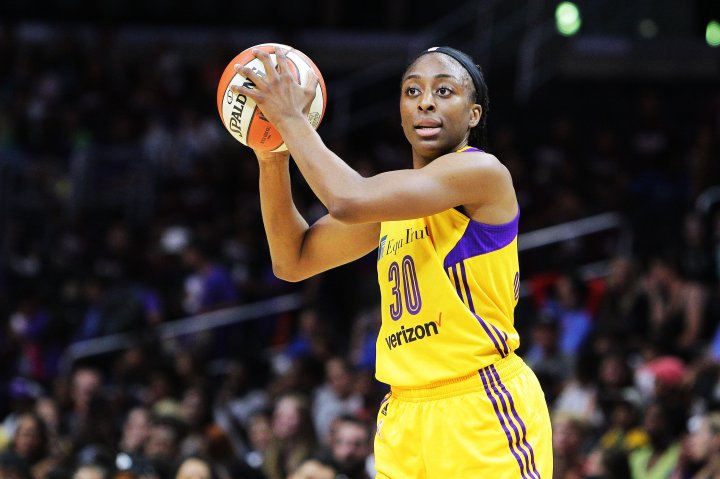Many WNBA players spend their winters playing overseas, but the 6' 2" forward for the Los Angeles Sparks has deeper international experience than most: Her parents were born in Nigeria. She credits her time with Russian Premier League team Dynamo Kursk (where she played the last two seasons) for helping her to develop into an offensive force. “They wanted me to shoot all the time,” she says. “That’s uncomfortable, but you get used to it.” This season, Ogwumike, 26, set career highs in points (19.7 per game) and rebounds (9.1), while shooting 66.5% from the field, second best in WNBA history.
On “female athletes”
“When people recognize us, a lot of times they say, ‘Oh, you’re a female basketball player!’ Or, ‘You play girls’ basketball!’ It sounds horrible. I think [that perception] is definitely changing—not just in my sport but all over the place. It’s awesome. This summer I’ve had so many young boys come up to me: ‘Omigod, you play for the Sparks!’ I think that’s part of the revolution—not just giving women the opportunity to be treated equally as athletes, but also to have fans of all kinds.”
On why she thinks that revolution is happening
“Social media. A lot of people say it’s a necessary evil. I think it’s a beautiful thing. It exposes audiences of all kinds to what [the WNBA] is doing. We’re definitely one of the organizations that has benefited from social media. Our league is special in that our fans are quite personal. They know us inside and out. When you have social media and you have NBA players supporting us, it brings more eyes to our game.”
On growing up in Houston’s Nigerian community
“The other [Nigerian] parents would question why [my younger sister, Chiney, and I] were playing basketball. Once we both got scholarships to Stanford, they started asking how they could get their kids into basketball. It’s really funny. Even now there are people asking [my parents], ‘Hey, can they come talk to my daughter?’ ”
On the national anthem protests
“If one athlete doesn’t [kneel], it doesn’t necessarily mean that they don’t believe [in the cause]. People like to stigmatize those who kneel and those who don’t. That’s something that needs to stop, in my opinion. Athletes are trying to be heard and to let the community know that there’s a problem that’s bigger than us, but they can show what they believe in different ways.”
On her favorite thing about playing internationally
“I love trying new foods. I love baklava, which is a Turkish dessert. It’s so good. A lot of people think it’s too sweet and opt for the rice pudding, but baklava is my thing when I travel to Turkey. You really can only eat one piece—it’s very sweet. Eating one will probably add 10 pounds.”


